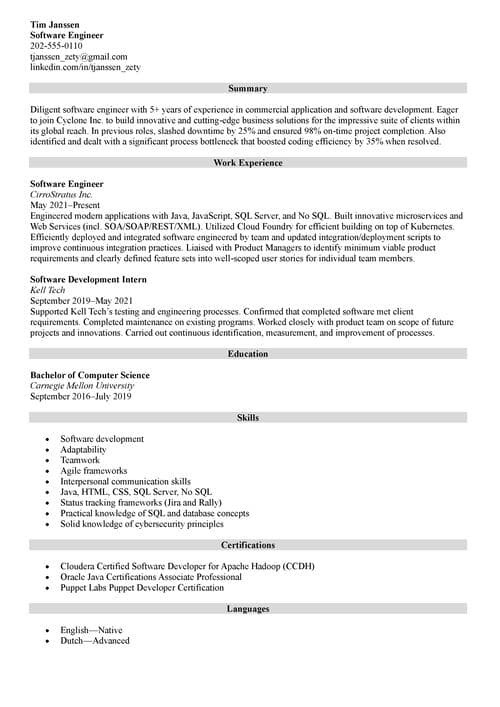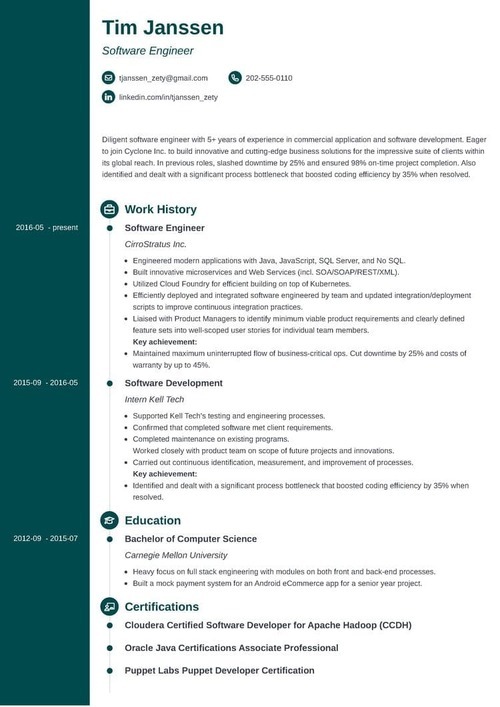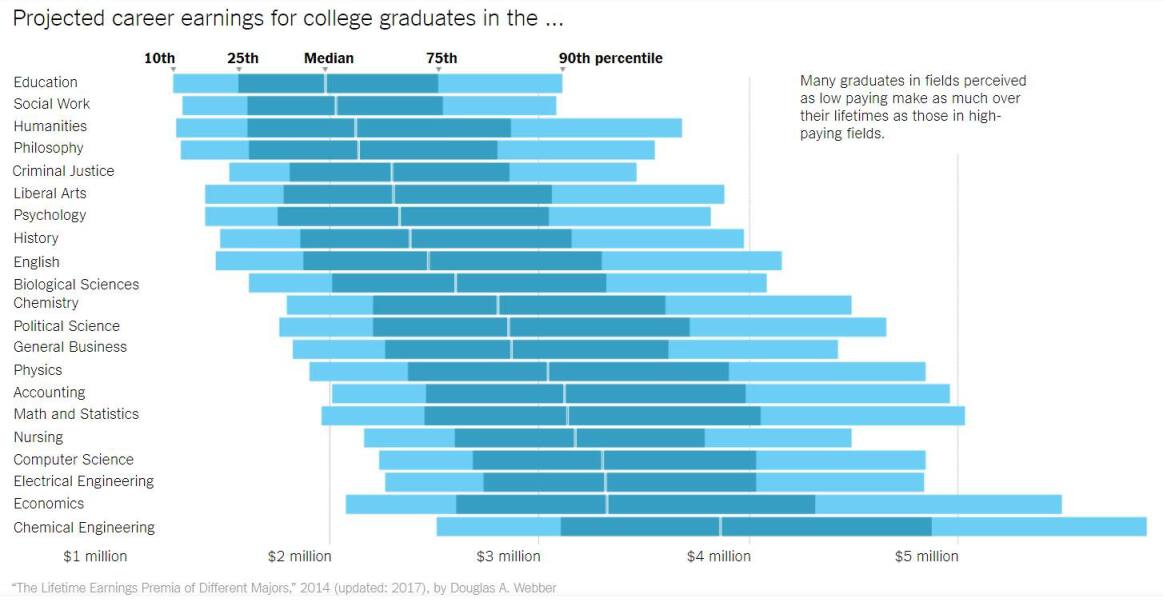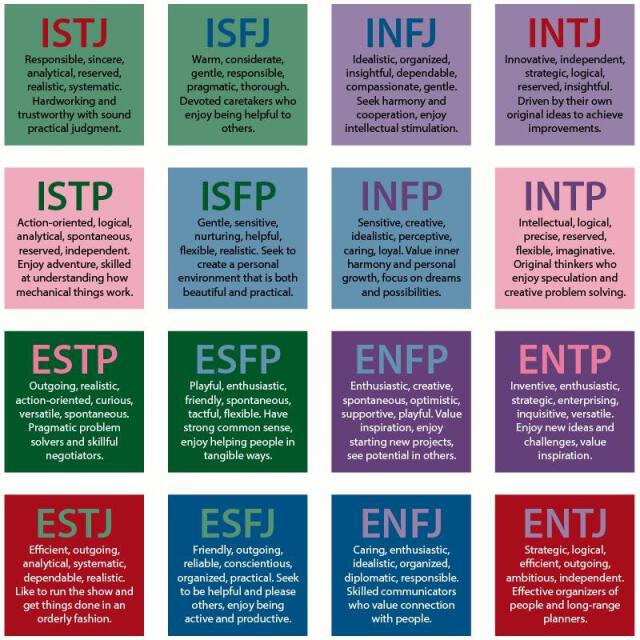How to Figure Out What You Want to Major in
We're nigh to get to how to choose a major, but call back about this, first:
What college should I become to? What career should I choose? What degree should I get that I'll be happy with 10, 20, and l years from at present?
These are all major decisions. And directly related to these is one more major determination to sort out: What should I major in?
There are literally thousands of majors to cull from, and each university and college programme will vary on their offerings. You demand to pick a major that your future self will thank you for.
Don't worry - it'south not as hard as it sounds. With this complete guide where we'll walk you pace-by-step through the procedure, you'll be well on the way to finding the right major for you.
This guide on choosing a higher major will show you:
- What is a higher major and why choosing the correct one is of import.
- How to choose a major that is right for you and your future career path.
- How to figure out what you desire to major in during your university studies.
Want to salvage fourth dimension and have your resume set up in five minutes? Try our resume builder. Information technology's fast and easy to use. Plus, y'all'll go fix-made content to add with ane click. See 20+ resume templates and create your resume here.
Create your resume at present


Sample resume made with our builder—Come across more than templates and create your resume hither.
Here's a pace-by-stride guide on how to choose a major:
1
Place Interests, Values, Passions, and Abilities
Don't ask yourself "What major should I choose?" The correct question is "What major is right for me?"
The very offset step in choosing a major that is right for you is to discern for yourself the areas of study that are important to you. These can be divided into several general categories, which we'll talk about one-by-i:
Pick a major based on abilities
Abilities are what you are able to exercise, generally speaking. Understanding what areas you accept skills in and which areas could use piece of work is a groovy way to commencement the elimination process when choosing a university major.
However, don't discount the fields where yous lack ability only withal; you lot'll be able to build those up more than during your studies - it is a identify to learn, after all.
I am a whiz at mathematical calculations - maybe I'll written report to go an astronaut.
Pick a major based on values
Choosing a major based on your cadre beliefs volition normally lead to work that is more than rewarding and encouraging.
However, don't await besides difficult at your values when choosing a major, either. University is a fourth dimension of experimentation and self-discovery, and near people solidify their values during their college years.
I want to aid clean up the oceans! Perhaps I'll choose an ecology policy major.
Selection a major based on interests
Your interests are a fine way of determining which major to choose in college. I hateful, if you like doing something, why non go paid for information technology, right?
Only remember that, as with your values we previously mentioned, your interests may alter over time. The years of university make current interests more volatile than the years before and later it.
I beloved the Renaissance painters - maybe I'll major in art history.
Pick a major based on passions
At starting time glance, your passions seem just like involvement areas, only stronger. But this is quite an understatement. Passions are areas of deep interest, certain, but they also contain your values and abilities into something that becomes a called-for, lifelong desire.
Following your passions, whatever they may be, is one of the best ways to choose a major, and it mostly has the least second-guessing afterward on. Still, every bit with your interests, passions may be defined later on, even after university is over.
I long to help underprivileged children - I want to major in pediatric nursing.
Your close friends - who knows you better? Get their input by telling them what you lot believe your interests, passions, abilities, and values are. They might agree, or they might recollect y'all're crazy. But they might just aid you make up one's mind what to major in.
In the final chapter, nosotros talked about your electric current interests, passions, abilities, and values, but that's the affair - those were such for now.
So, what well-nigh the time to come? Here are some questions to ask yourself to consider the long-term when discovering how to cull a major that's correct for you lot:
Will yous still enjoy information technology years from now?
Yous have interests and passions and these ideas that you lot value. But what'due south to end you from switching positions or changing your mind? Who's to say how you'll feel even ten years from at present - non to mention 20 or 30 years from now?
If you're not and so sure how to reply this question, consider something more full general or wide in scope - maybe Literature instead of majoring in Appalachian Literature of the 1940s.
Is it employable?
In other words, volition you be able to easily and readily find employment in a related field after you earn the degree? Avoid the possible discouragement from employment rejection later on by considering a broader bailiwick rather than something super niche.
Will information technology exist around afterwards in life?
We live in a time of unrelenting technological progress and innovation. Artificial intelligence and automation are changing the game right now, and information technology'll but be more than so in the future.
You might take answered that, aye, information technology is employable, but volition it stay that fashion for decades to come? Employment staples such as bookkeeping are no longer a condom bet.
Will information technology pay?
You might exist the most adamant while saying that money doesn't rank high in your controlling procedure when deciding which major to option. But let'due south be honest - it does thing.
Take a look at this graphic depicting the career earnings projections of graduates in different fields of study:

Nobody wants to struggle later in life (or at all), financially. And if you'll want to have a family afterwards, it is important to proceed compensation in mind. As well - you're gonna have to pay back all these pupil loans!
Demand some real-world experience during your studies at uni? Check out this article: Internship Resume for College Students: Guide (20+ Examples)
If I gave you a napkin with a chop-chop-scrawled endorsement of your cognitive prowess along with my signature, it'due south probably not going to open many doors for you lot. Likewise, your future diploma and its efficacy rely largely on the issuer.
While there are some schools, like Harvard and Yale, whose alumni are held in high esteem no matter what, near of us attend universities that are great in particular areas. Think NYU for journalism or MIT for robotics.
However, the more selective (read: elite) the school, the more leniency is commonly offered to students every bit far as experimentation of majors and fields of written report.
Just take a look at this comparison graphic showing the differences in pop majors at elite schools vs. the more inclusive ones:

At less selective schools, unfortunately, in that location are many more than students pursuing career-based majors, as there isn't such a strong alumni network or every bit many professional contacts in each field. Aristocracy schools' students are besides likelier to go along on to graduate studies, giving them more time to hone in on the major that's right for them.
But don't let this dishearten you. The dandy thing about the larger, more-inclusive schools is the sheer volume of courses and certificates offered. As a immature adult still looking for your way, this is the ideal sandbox to flirt with different areas of study until you narrow in on the right one.
One time you've filtered schools downwardly to the one or few that sound the all-time for you, take a look at their list of undergraduate programs and majors to determine which specific programme suits you.
Pro Tip: Popular majors at many universities often have what's called " capacity- constrained access," which places a cap on some classes. To increase chances of finding room in the course you desire, make certain that you continue your grades up in any coursework required past your major.
Consider taking a college major assessment test, which helps yous decide how to cull a major by asking several dozen questions. For tests to see what major is right for you, check out the "What should I major in quiz" by Loyola or the "college major personality quiz" from ThoughtCo.
Speaking of personality quizzes, a pop one to take is the Myers & Briggs MBTI Personality Type Test, which separates people into 16 psychological types. These frequently are a swell way to figure out if a detail university major, minor, or career choice is right for you.

A nautical chart with descriptions of each Myers-Briggs personality blazon, created by Wikimedia Commons author J. Beech.
If y'all found this article considering you are stressing out about what your college major will be, only you are only still in the fifth course, relax.
You take time.
Even if you are inbound university, most schools and their advisors recommend that you wait earlier declaring a major. In the U.South., it is mutual to leave the annunciation of your intended major until the terminate of your sophomore year.
UCLA conducted a national survey in which they plant that over 20% of students who had a major called upon entering university had already changed their minds by the end of their first year.
If yous are nearing that sophomore yr'southward end and are even so undecided equally to what you'd like to major in, don't worry. Y'all're not the first, and you surely won't be the last.
Consider taking a semester off to find yourself, or perhaps even a gap year sabbatical, traveling around the earth or working full time. This can really put things in perspective for you.
Pro Tip: Many schools now allow students to cull a "meta-major," which groups traditional majors nether an umbrella that spans whole fields, such as business or Stem.
When making a resume in our builder, drag & drib bullet points, skills, and auto-fill the ho-hum stuff. Spell check? Bank check. Start building aprofessional person resume template here for free.

When you're done, Zety's resume builder will score your resume and tell you lot exactly how to go far better.
Choosing a major is ultimately your determination to make. Yet, if you need help picking a major, it'south time to turn to tried-and-truthful sources of encouragement and assistance:
See with Advisors
Who amend to aid yous decide how to choose a major than the college advisors whose main job information technology is to do and then?
Meeting with the academy advisor will offer you more in return than simply advice on which major is right for yous - with their intimate noesis of the specific university and campus, they can curate simply the right course of study for each educatee.
If you lot're researching your major fashion in accelerate, you could ask your loftier schoolhouse counselor or advisor to guide you with the process. All the same, they won't accept the detailed experience of the college that the academy counselor has.
Volume Fourth dimension with Career Advisors
Many universities (and high schools, fifty-fifty) have career counselors on acme of their academic advisors. Meeting with these career advisors might be helpful, as they can give yous a long-term view of how a item major or degree volition interpret to a career down the road.
Scholastic Semantics: A major is the field which a student focus specializes during the form of their studies. A minor is a secondary field or concentration that oftentimes complements the major, only is dissimilar than a double major. A college pocket-sized also won't crave equally many classes and hours as a full-blown major.
Talk to Your Peers
Your friends and peers are oft a source of great inspiration and ideas. Though they might not take the overall noesis like the professional person advisors, your friends and peers know what you're going through. They're in the same boat, then to speak, so don't discount their suggestions.
Chat With Your Parents
Your parents - they've been there for you lot these concluding couple of decades, and and so far, they seem to have your best interest at heart.
However, avert parents' suggestions if they commencement becoming too insistent on a detail path for you lot. You must do what you desire to do, rather than worry that it bothers them.
Pro Tip: Parents are oftentimes the ones that become disgruntled if their children tells them they're pursuing a liberal arts degree. However, in today'southward temper, degrees such as these are becoming more lucrative, as the boundaries of traditional majors are oftentimes too rigid for today's creative careers.
Will you work to make ends meet during your university studies? Check out this article on how to write your didactics on your resume the correct way: How to Put Your Education on a Resume [Tips & Examples]
6
Spot Any Disadvantages Earlier Choosing a Major
Imagine the perfect major at your university, complete with tuition and dormitory reimbursement, fun and rewarding studies, and your future life partner sitting beside you. The disadvantage? That scenario doesn't exist.
Yeah, every major that you cull will ultimately take some downsides and disadvantages. The only thing you can exercise is to be aware of them and to make certain that you can handle when they determine to popular up.
Determine how probable y'all'll exist to switch majors. As we've seen before, many students switch their majors and modify their minds throughout their university studies. While it's not a disadvantage, it could cost more and take more than time to achieve the degree.
If probable to switch, how rigid are the prerequisites? If your first choice is something in medicine, but y'all take an inkling that you might want to change to financial management later downwardly the line, the electives and cadre classes volition probably be completely unlike, significant you'll be starting from the very beginning should you lot switch, essentially.
Don't overspecialize. For your undergraduate studies, avoid choosing a major which is too specialized. Your career prospects and task outlook would remain all too narrow.
How continued is my chosen academy? Y'all want to pick a major in a college that is well-connected to local contacts in your chosen field for that real-globe experience. Whatever higher besides rural or too minor may leave you at a disadvantage upon your graduation.
How will I exist affected after I terminate the programme? Make sure that you lot understand the costs, the time to come job market, and the locations you may take to relocate to advance your career.
For a full guide on how to write a resume for students, see: Complete Guide to Writing a Pupil Resume [13 Tips, Examples]
Every bit with relationships and the latest billboard hits, you may make up one's mind that the major you chose is not correct for you anymore.
Don't worry about this - you're not alone. According to the NY Times, a whopping 61% of the students at the University of Florida change their minds on their major past the end of the sophomore yr. As you can see, you lot'd be in the minority if you lot didn't 2d-judge yourself.
1 affair to keep in heed is to make certain that you don't merely pick the easiest program out there. Cull a path that volition requite you a degree that y'all'll be proud of and that at least fits somewhat with the idea of the direction you are heading.
One quick thing to mention before nosotros end - the reality cheque. Before pulling the trigger on the major of your option, ask yourself:
- What kind of job is right for me in the future as a career?
- Will this major I've chosen help me towards information technology?
- What college is right for me for my undergraduate studies?
- Does this college offer a neat program for my called major?
- Does my chosen major fit my abilities, values, interests, and passions?
- Have I identified all the downsides and disadvantages of my chosen major?
Yous're out of high school now, so you lot can't afford to base your classes on what'due south easy or which class has your vanquish attending it. Be real with yourself.
Pro Tip: Don't worry, y'all can all the same change your mind later, of course. Only no matter when y'all choose your major, and how often you lot switch information technology, be sure to question your decision with these questions outset.
9
Read More and Reconsider
Here are some carefully curated resources to read afterward finishing this article. These volition give you lot a better idea how to choose the best major that is correct for you:
- What Colleges Want in an Applicant (Everything) - New York Times
- Six Myths Nigh Choosing a College Major - New York Times
- Comparing: Return on Investment of Diverse Higher Degrees - Observe
- The Half dozen Classes That Volition Make Whatsoever College Grad Employable - Forbes
- Graduation rates of commencement-fourth dimension, full-time bachelor's caste-seeking students at 4-twelvemonth postsecondary institutions, by race/ethnicity, time to completion, sex, and command of institution: Selected cohort entry years, 1996 through 2006 - National Center for Education Statistics
Plus, a corking cover letter that matches your resume will give you an advantage over other candidates. You tin can write it in our cover letter architect here. Here's what it may expect similar:

See more cover letter templates and start writing.
Central Takeaway
When you first start thinking near how to cull a major and which major is best for you, you'll probably fret over the process, the choices, and getting information technology correct. However, if you follow simple steps, you can be sure to be happy with your determination for years to come up.
In a nutshell, here's what you should do when choosing a major:
- Sort into categories - Separate prospective majors into ones which fit your abilities, values, interests, and passions.
- Choice a major that is hereafter-proof - Take an educated guess on which majors will stand the test of time and offer gainful employment far into your future.
- Get help - Talk to the experts, such as career counselors, academic advisors, your parents, and your peers to get a well-rounded view into the direction you should caput.
Do you lot accept any questions on how to choose a major? Not sure how to depict your skills or achievements? Requite us a shout in the comments below and we will respond your question. Thanks for reading!
Source: https://zety.com/blog/how-to-choose-a-major
0 Response to "How to Figure Out What You Want to Major in"
Postar um comentário